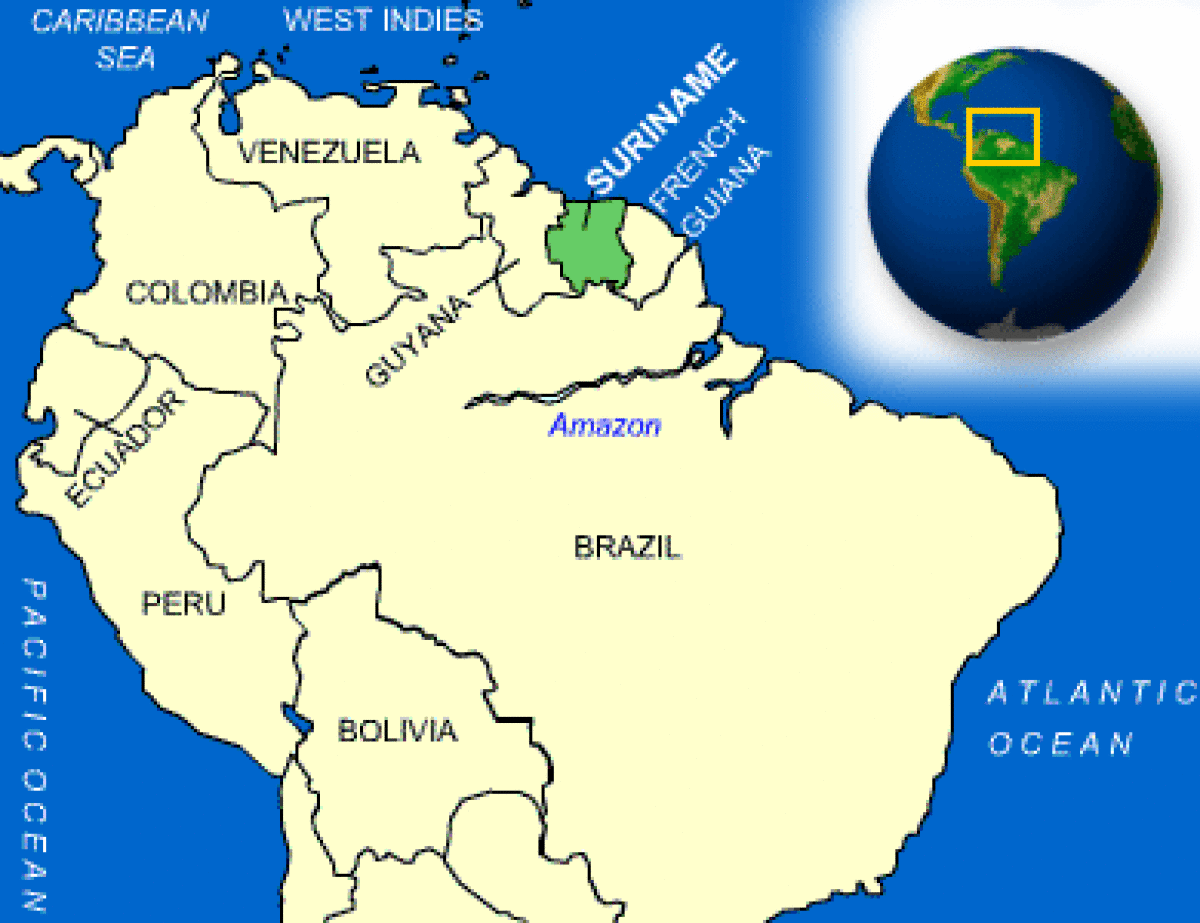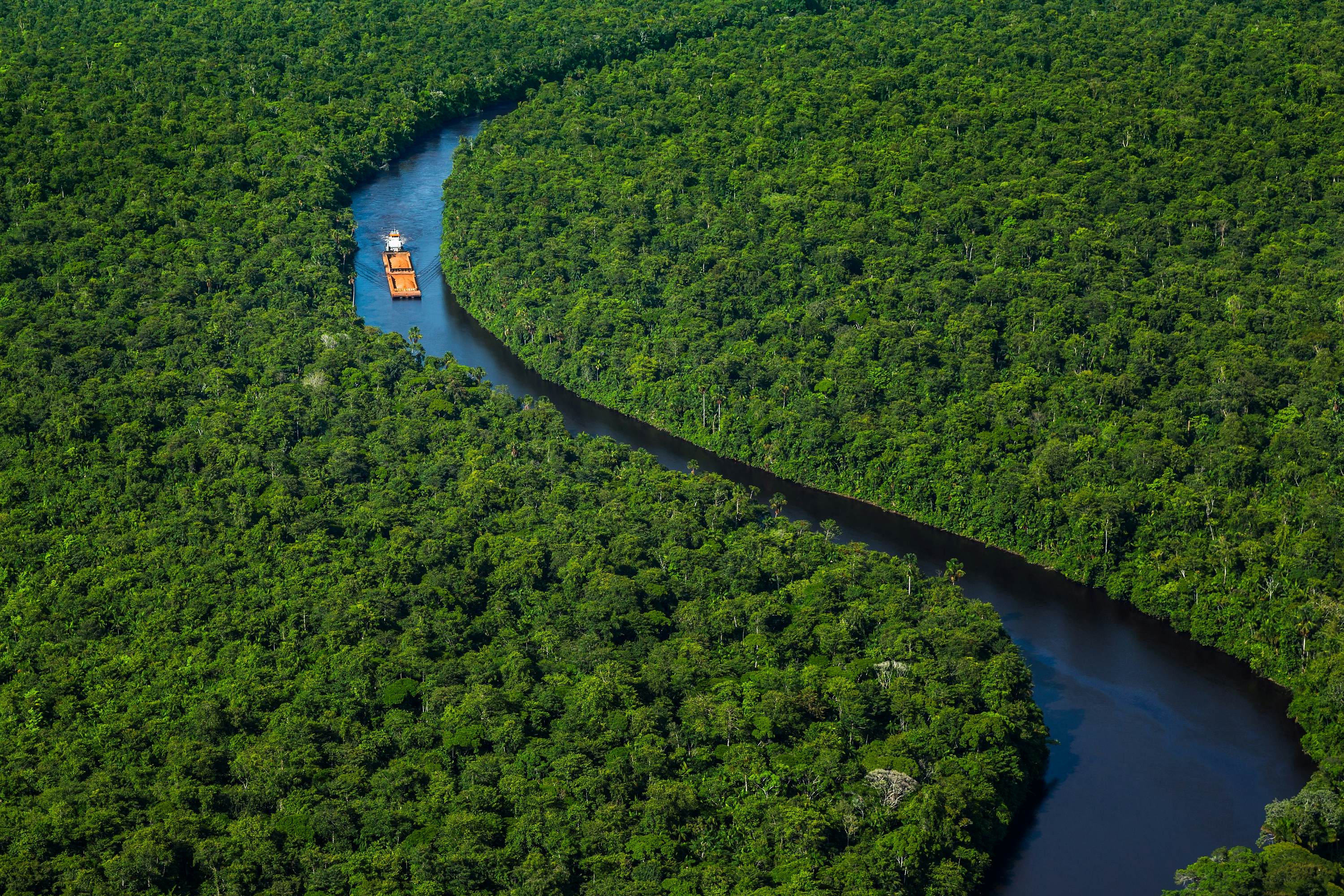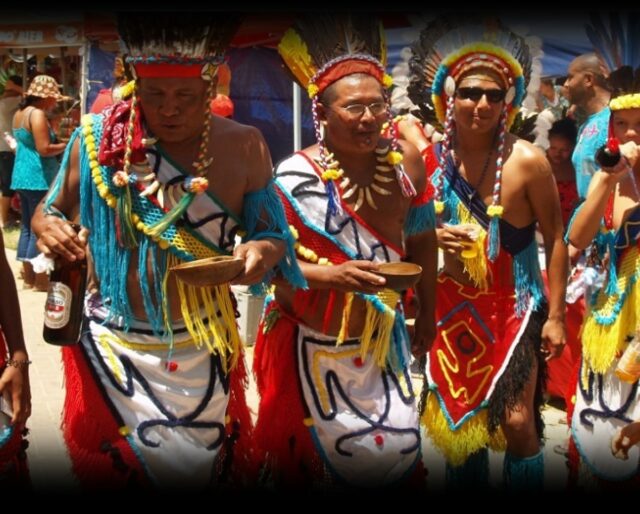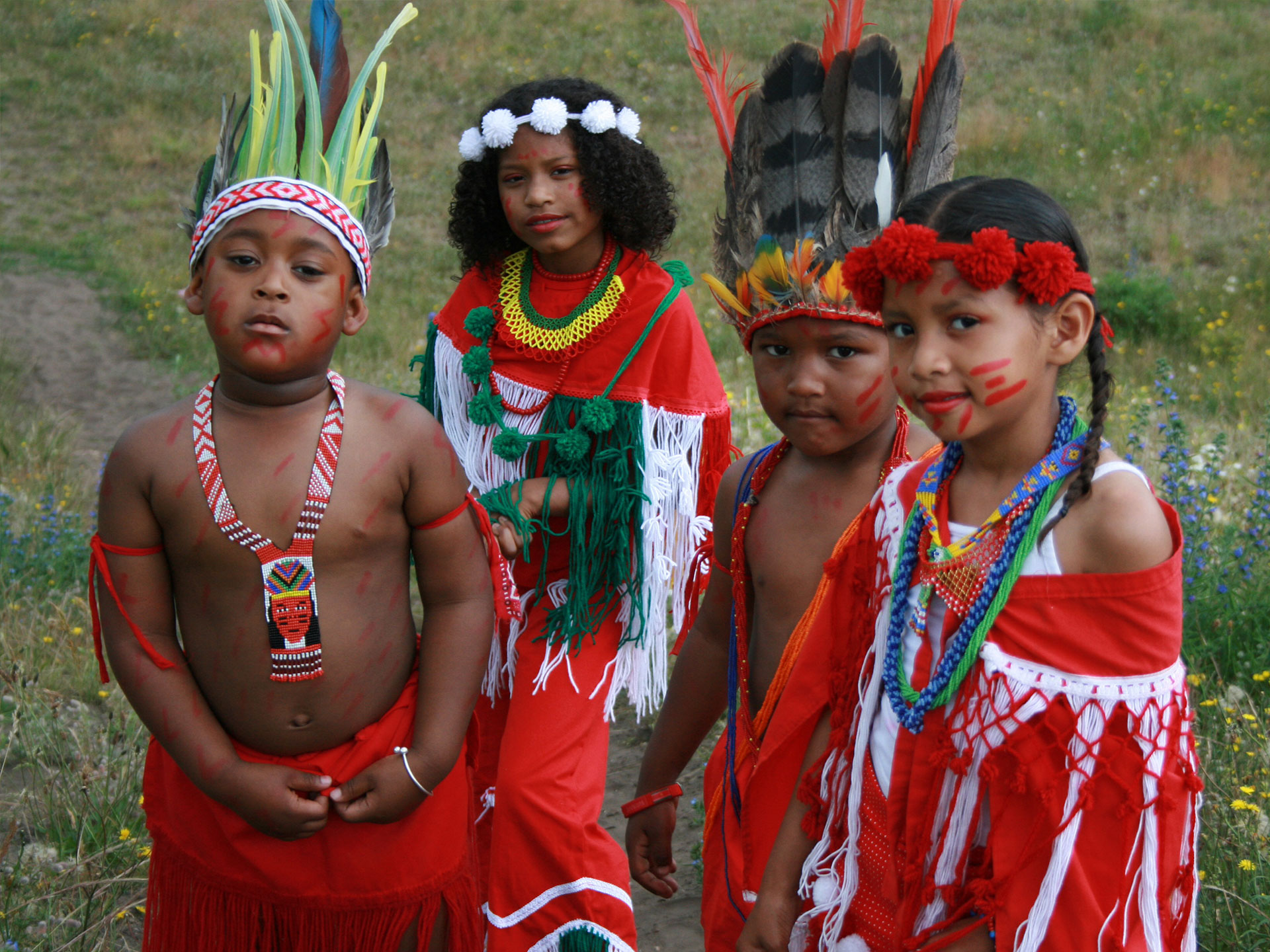Latin America
Related: About this forumSuriname: More arrests expected after antigovernment riots
February 18, 2023 at 4:52 p.m. EST
PARAMARIBO, Suriname — Suriname’s government warned of more arrests and put police on high alert Saturday a day after a protest against the policies of President Chandrikapersad Santokhi spun out of control and hundreds of demonstrators stormed parliament.
Demonstrators marched Friday to the National Assembly building to protest against price hikes and the reduction of electricity and fuel subsidies as a result of an IMF program. They overwhelmed police who fired tear gas. Riots soon broke out and the Assembly building damaged. On Saturday, police set up roadblocks, extra surveillance and checkpoints on bridges.
Justice Minister Kenneth Amoksi took stock during a press conference, saying 119 people had been arrested and 20 injured during the disturbances. More arrests are expected to follow.
“We have the images. It is only a matter of time before you are apprehended,” said Amoksi
Amoksi was joined in the press conference by chief of police Ruben Kensen, army commander Werner Kioe A Sen and security adviser Humprey Tjin Liep Shie.
Kensen said the situation was under control but there will be increased security measures in the coming period. Protest leader Stephano Biervliet was invited by Amoksi to report to the police.
More:
https://www.washingtonpost.com/world/suriname-more-arrests-expected-after-antigovernment-riots/2023/02/18/82e43e4e-afd6-11ed-b0ba-9f4244c6e5da_story.html
~ ~ ~
Suriname Wikipedia:
Suriname (/ˈsʊərɪnæm, -nɑːm/ (listen)), officially the Republic of Suriname (Dutch: Republiek Suriname [reːpyˌblik ˌsyːriˈnaːmə]), is a country in northern South America. It is bordered by the Atlantic Ocean to the north, French Guiana to the east, Guyana to the west, and Brazil to the south. At just under 165,000 square kilometers (64,000 square miles), it is the smallest sovereign state in South America.[a]
. . .
Etymology
The name Suriname may derive from an indigenous people called Surinen, who inhabited the area at the time of European contact.[16] The suffix -ame, common in Surinamese river and place names (see also the Coppename River), may come from aima or eima, meaning river or creek mouth, in Lokono, an Arawak language spoken in the country.[17]
. . .
History
Indigenous settlement of Suriname dates back to 3,000 BC. The largest tribes were the Arawak, a nomadic coastal tribe that lived from hunting and fishing. They were the first inhabitants in the area. The Carib also settled in the area and conquered the Arawak by using their superior sailing ships. They settled in Galibi (Kupali Yumï, meaning "tree of the forefathers"![]() at the mouth of the Marowijne River. While the larger Arawak and Carib tribes lived along the coast and savanna, smaller groups of indigenous people lived in the inland rainforest, such as the Akurio, Trió, Warrau, and Wayana.
at the mouth of the Marowijne River. While the larger Arawak and Carib tribes lived along the coast and savanna, smaller groups of indigenous people lived in the inland rainforest, such as the Akurio, Trió, Warrau, and Wayana.
Colonial period
Beginning in the 16th century, French, Spanish and English explorers visited the area. A century later, Dutch and English settlers established plantation colonies along the many rivers in the fertile Guiana plains. The earliest documented colony in Guiana was an English settlement named Marshall's Creek along the Suriname River.[19] After that there was another short-lived English colony called Surinam that lasted from 1650 to 1667.
Disputes arose between the Dutch and the English for control of this territory. In 1667, during negotiations leading to the Treaty of Breda after the Second Anglo-Dutch War, the Dutch decided to keep the nascent plantation colony of Surinam they had gained from the English. In return the English kept New Amsterdam, the main city of the former colony of New Netherland in North America on the mid-Atlantic coast. The British renamed it after the Duke of York: New York City.
In 1683, the Society of Suriname was founded by the city of Amsterdam, the Van Aerssen van Sommelsdijck family, and the Dutch West India Company. The society was chartered to manage and defend the colony. The planters of the colony relied heavily on African slaves to cultivate, harvest and process the commodity crops of coffee, cocoa, sugar cane and cotton plantations along the rivers. Planters' treatment of the slaves was notoriously brutal even by the standards of the time[22]—historian C. R. Boxer wrote that "man's inhumanity to man just about reached its limits in Surinam"[23]—and many slaves escaped the plantations. In November 1795, the Society was nationalized by the Batavian Republic and from then on the Batavian Republic and its legal successors (the Kingdom of Holland and the Kingdom of the Netherlands) governed the territory as a national colony, barring a period of British occupation between 1799 and 1802, and between 1804 and 1816.
With the help of the native South Americans living in the adjoining rain forests, these runaway slaves established a new and unique culture in the interior that was highly successful in its own right. They were known collectively in English as Maroons, in French as Nèg'Marrons (literally meaning "brown negroes", that is "pale-skinned negroes"![]() , and in Dutch as Marrons. The Maroons gradually developed several independent tribes through a process of ethnogenesis, as they were made up of slaves from different African ethnicities. These tribes include the Saramaka, Paramaka, Ndyuka or Aukan, Kwinti, Aluku or Boni, and Matawai.
, and in Dutch as Marrons. The Maroons gradually developed several independent tribes through a process of ethnogenesis, as they were made up of slaves from different African ethnicities. These tribes include the Saramaka, Paramaka, Ndyuka or Aukan, Kwinti, Aluku or Boni, and Matawai.
. . .
Ethnicity
The largest ethnic group are East Indians, who form over a quarter of the population (27.4%).[81][82][83][84][85][86] The vast majority are descendants of 19th-century indentured workers from India, hailing mostly from Bhojpuri speaking areas of modern Bihar, Jharkhand, and northeastern Uttar Pradesh, Haryana and southeastern Tamil Nadu. If counted as one ethnic group, the Afro-Surinamese are the largest community, at around 37.4%; however, they are usually divided into two cultural/ethnic groups: the Creoles and the Maroons. Surinamese Maroons, whose ancestors are mostly runaway slaves that fled to the interior, comprise 21.7% of the population; they are divided into six tribes: Ndyuka (Aucans), Saramaccans, Paramaccans, Kwinti, Aluku (Boni) and Matawai. Surinamese Creoles, mixed people descending from African slaves and Europeans (mostly Dutch), form 15.7% of the population. Javanese make up 14% of the population, and like the East Indians, descend largely from workers contracted from the island of Java in the former Dutch East Indies (modern Indonesia).[87] 13.4% of the population identifies as being of mixed ethnic heritage. Chinese, originating from 19th-century indentured workers and some recent migration, make up 7.3% of the population.
Other groups include Lebanese, primarily Maronites, and Jews of Sephardic and Ashkenazi origin, whose center of population was Jodensavanne. Various indigenous peoples make up 3.7% of the population, with the main groups being the Akurio, Arawak, Kalina (Caribs), Tiriyó and Wayana. They live mainly in the districts of Paramaribo, Wanica, Para, Marowijne and Sipaliwini.[citation needed] A small but influential number of Europeans remain in the country, comprising about 1% of the population. They are descended mostly from Dutch 19th-century immigrant farmers, known as "Boeroes" (derived from boer, the Dutch word for "farmer"![]() , and to a lesser degree other European groups, such as Portuguese. Many Boeroes left after independence in 1975.
, and to a lesser degree other European groups, such as Portuguese. Many Boeroes left after independence in 1975.
More:
https://en.wikipedia.org/wiki/Suriname



Suriname Indigenous Peoples Day




![]()
I was posted in Paramaribo for 4 months during 2014, pleasant city with most modern amenities, though the interior of the Country is very remote, and some locations can only be reached by small aircraft. Enjoyed my stay there overall.